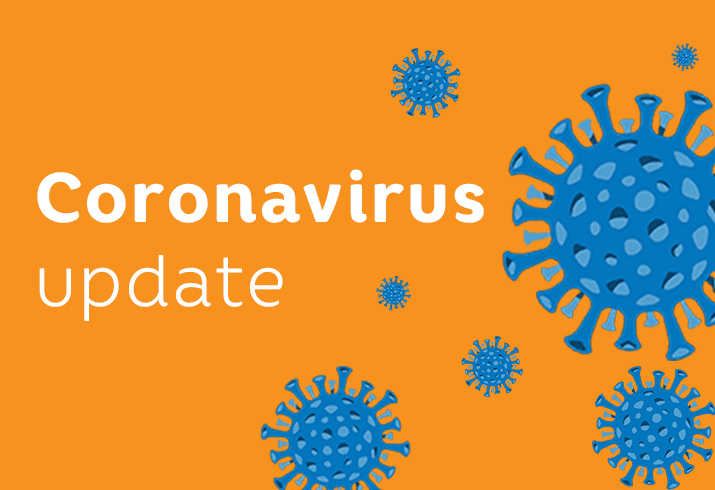Coronavirus: Information for patients and families

All you need to know about Coronavirus and the health of your child.
We know that this is a scary and challenging for parents who are worried about their child and family's wellbeing.
We've gathered information and resources to help you answer some questions and provide some reassurance as we face this challenge.
Service changes
In response to the restrictions around Coronavirus, we've made some changes to how we deliver our services.
Find out more below:
Resources
HealthyWA
HealthyWA has daily updates and information about Coronavirus for the Western Australian community.
Department of Health, Western Australia
The Department of Health includes the latest information and impacts on health across the state.
Department of Health, Australian Government
The Australian Government has information on how they are responding to the outbreak, and what you can do to reduce the spread.
Frequently asked questions
What is Coronavirus (COVID-19)?
Coronaviruses are a large family of viruses that can cause illness in humans and animals. Human coronavirus illnesses are generally mild such as the common cold. However, some coronaviruses can cause severe diseases such as Severe Acute Respiratory Syndrome (SARS), which was identified in 2003, and Middle East Respiratory Syndrome (MERS), which was identified in 2012.
COVID-19 is a new coronavirus, first identified in Wuhan, Hubei Province, China in December 2019. It is a new strain of coronaviruses that hasn’t previously been identified in humans. COVID-19 is closely related to SARS and in the same family of viruses as MERS.
What are the symptoms of Coronavirus?
Coronavirus can cause a range of symptoms. Symptoms can range from mild illness to severe pneumonia. Affected people may experience:
- fever of 37.5C or above OR fever in the last few days (for example, night sweats or chills), without a known source
- have acute respiratrory symptoms (for example, coughing, shortness of breath, sore throat, runny nose)
- sudden loss of smell or taste.
Who is at risk?
People who live in, have recently travelled to countries where the virus is circulating, or have had close contact with a confirmed case may be at risk of becoming unwell.
Some people may be at higher risk of severe infection, including the elderly and those with some pre-existing medical conditions. What currently know is that Coronavirus infection in children appears to be milder than in adults.
What is considered ‘close contact’ with a confirmed Coronavirus case?
A close contact is defined as:
- Greater than 15 minutes face-to-face contact, in any setting, with a confirmed case OR
- Sharing of a closed space with a confirmed case for a prolonged period (e.g. More than two hours)
What should I do if my child becomes unwell and has symptoms of Coronavirus?
If your child has recently travelled overseas, or had close contact with someone who has been diagnosed with Coronavirus, and develops a fever, cough, or sore throat, please seek medical attention by calling the Coronavirus Information Line on 1800 020 080.
If your child has not travelled overseas, or has not been in close contact with someone who has been tested and diagnosed with Coronavirus in the past 14 days and yet you are still concerned, please call your GP or the Coronavirus Information Line on 1800 020 080.
What can I do to protect myself and my children?
The best way to prevent the spread of COVID-19 is by practising good hand hygiene and sneeze/cough etiquette. This includes:
Washing your hands
Frequently washing your hands for at least 20 seconds with soap and water, or using an alcohol-based hand gel. Here's how to wash your hands properly.
Try not to touch your mouth and nose
If you need to cough or sneeze, cover your nose and mouth with a paper tissue or flexed elbow – throw the tissue immediately after use and wash your hands.
Stay away from people who are sick
Avoid close contact with anyone if you, or they, have a cold or flu-like symptoms (maintain a distance of at least one metre).
Do I need to wear a face mask?
You do not need to wear a mask if you are healthy. While the use of masks can help to prevent transmission of disease from infected patients to others, masks are not currently recommended for use by healthy members of the public for the prevention of infections like Coronavirus.
Read the full detail on COVID-19 on Healthy WA.

